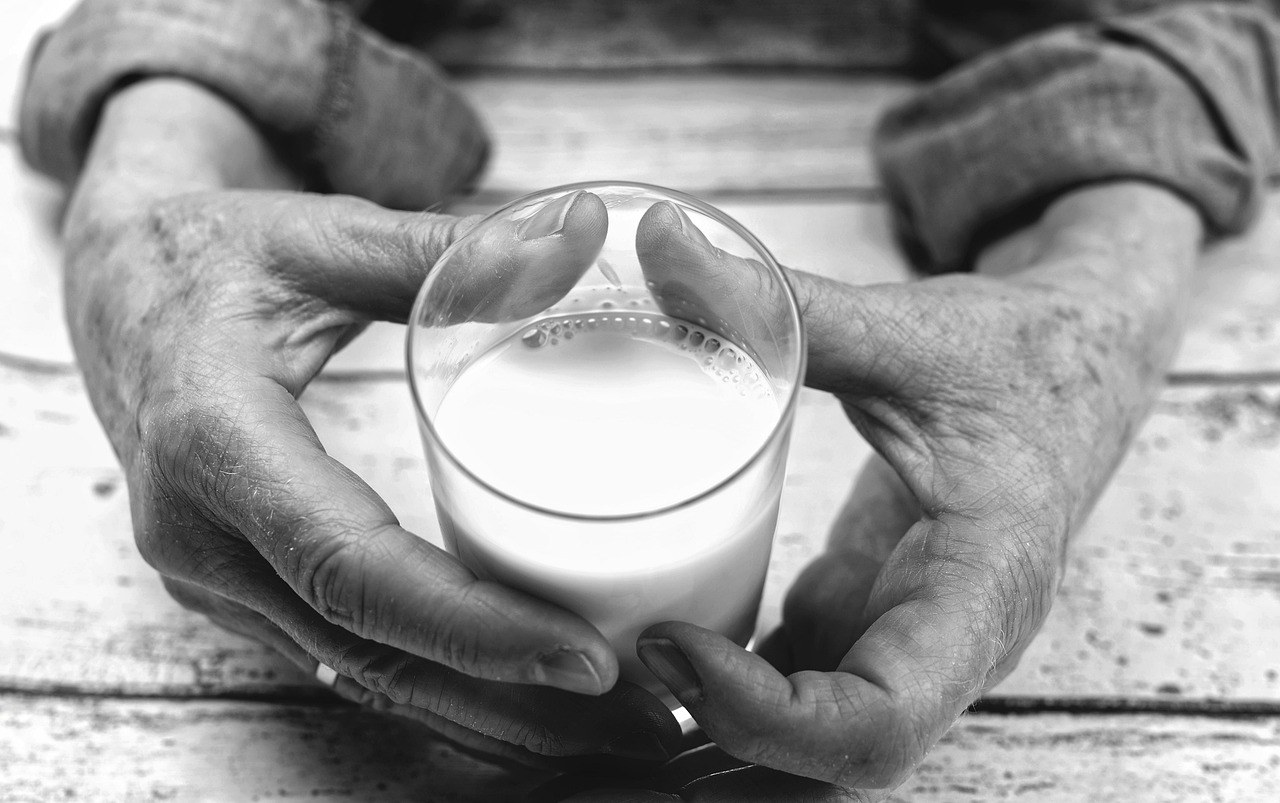Love often arrives like weather-rolling in without warning, warming the skin for a while, and then changing its mind just when we think we understand it. Many people try to trap it in definitions or timelines, yet the only thing that seems to hold is this: when we meet love as it is, moment to moment, it becomes richer and less frightening. In other words, the experience of love is not a checklist to complete but a landscape to wander through with attention and humility. This piece reimagines that landscape, exploring how attachment and freedom can coexist, why intensity can feel like permanence, and how savoring the present can soften the most bewildering edges.
What We Mean When We Say “Love”
Ask a dozen people to define love and you will hear a choir of different melodies-some will sing of comfort, others of electricity, others still of a quiet duty that deepens with time. The experience of love tends to be wider than any single definition because it includes the surprising textures of joy and ache, closeness and distance, certainty and doubt. We stumble into it more often than we manufacture it, and that lack of complete control can be both exhilarating and unnerving. We may wish love behaved like a light switch-on when we want it, off when we do not-but our hearts rarely obey such simple mechanics.
Consider the famous invitation from Shakespeare: If music be the food of love, play on . The line gestures toward abundance-toward the sense that love, like music, feeds us in ways reason can only partially explain. Yet even music has rests between notes. The pauses do not mean the song has ended; they give shape to what comes next. In a similar way, the experience of love includes pauses, hesitations, and quiet interludes that can feel, in the moment, like loss. The question is not whether these rests will occur-they will-but how we listen to them.

Why Control Slips Through Our Fingers
Human beings cherish certainty. We plan weeks ahead, we put reminders in calendars, we look for patterns that promise stability. At the very same time, we long for novelty-new stories, fresh possibilities, a taste of adventure. The experience of love sits precisely at this crossroads. It answers our craving for safety with familiarity and our craving for variety with discovery. No wonder it feels slippery: the heart is negotiating two powerful drives at once. When we forget this, we may try to force love to behave like stone-hard, fixed, unchanging-when in truth it moves more like water.
That movement shows up early in life. The infant’s bond with a caregiver offers a template of trust-someone reliable to turn to when the world is too loud. Later, friendships in school open another door, teaching us how affection grows from shared time and honest attention. These layers do not cancel each other; they widen our capacity. The experience of love keeps changing costumes as we change, a revolving stage where new scenes emerge while older themes echo in the background.
First Flames and the Myth of Forever
Many of us remember the surge of our first romantic attachment-the way everything else seemed to fade to grayscale while one person’s presence blazed in color. In that glow, it is easy to mistake intensity for permanence. The experience of love at this stage can feel like a promise written in the sky, impossible to imagine ending. When it does end, the shock can imprint deeply. Some people, singed by that collapse, decide never to touch fire again. Others learn that the heat of infatuation, while dazzling, is not the only warmth worth seeking.

To meet this transition with kindness, we do well to honor how real the first blaze felt without confusing it with the whole spectrum of connection. The experience of love can mature from spark to ember-less dramatic, perhaps, yet capable of steady light and lasting heat. This is not a downgrade; it is a different kind of radiance. The heart widens when it understands that change does not automatically equal failure.
A Gentle Detachment That Makes Space
One of the paradoxes of the heart is that a small measure of detachment can deepen intimacy. Not the cold withdrawal that punishes, but the soft stepping back that helps us see the shape of the bond. When we rise a little above the emotional storm-when we observe ourselves with compassion-we notice patterns that were invisible up close. The experience of love becomes easier to steer when we can say, “I’m overwhelmed,” instead of acting it out, or “I’m frightened,” instead of clinging. This is the difference between being fused to every emotion and being in conversation with it.
Detachment also helps when relationships shift or end. The ache of separation is not proof that the time together was wasted; it is proof that it mattered. By allowing room around the feeling-like cupping water instead of squeezing it-we give it a path to move through us. The experience of love does not disappear when a chapter closes. It transforms, teaching us what we value, where we abandon ourselves, and how we might show up more honestly next time.

Why Advice Is Easier to Give Than to Use
From the shore, it is simple to describe how to swim. In the waves, things get interesting. So it goes with matters of the heart. We can often see, from a distance, what might help a friend-slow down, breathe, stop texting at midnight-but become blind to those same suggestions when our feelings are on the line. The experience of love short-circuits our usual logic because love is not primarily a debate to win; it is a felt encounter to meet. Compassion for this human wobble is essential. We are not malfunctioning when we find it difficult; we are simply in deep water.
The Present Tense as a Way Home
When overwhelm rises, the present moment offers handholds. This is not a cliché; it is practical. Attention returns to what is truly happening-this breath, this conversation, this choice. The experience of love, viewed in present tense, becomes specific rather than abstract. Instead of asking, “Will this last forever?” we ask, “Am I caring, today?” Instead of demanding guarantees, we practice presence. Such presence does not shrink our hopes; it steadies them. It also frees us from bargaining with a future that nobody can sign in advance.
Practices That Support a Lived, Moment-to-Moment Bond
The following practices do not turn love into a machine with buttons. They simply cultivate awareness and warmth so that what is already alive has a chance to flourish. The experience of love grows sturdier when we return to these simple rhythms.
Attend to small signals. Grand gestures can be intoxicating, but the daily micro-choices tell the truer story. Notice tone, timing, and touch. The experience of love is braided from these tiny strands; when we tend them, the cord strengthens without drama.
Speak feelings, not verdicts. “I feel distant” invites a bridge; “You never care” builds a wall. Naming the inner weather opens room for repair. The experience of love thrives when words form invitations instead of accusations.
Pause before promising the moon. There is a difference between honest devotion and the fantasy that we can control every turn of the road. The experience of love appreciates sincerity today more than impossible vows about tomorrow.
Let variety and stability shake hands. Routine can be a harbor, novelty a wind. Plan a familiar ritual and a small surprise-tea on the porch and a new song to share. The experience of love enjoys the dance between known and new.
Honor the body. Rest, nourishment, movement-these are not separate from romance. A tired nervous system confuses threat with difference. The experience of love clears when the body is not drowning in fatigue.
When the Glue Feels Too Strong
Some bonds feel like superglue-difficult to peel away from even when the relationship harms more than it heals. Here, tenderness toward oneself is not optional; it is oxygen. The experience of love can blur into fear of loss, and fear can disguise itself as loyalty. Stepping back does not mean abandoning affection; it means refusing to abandon your own well-being. Ask simple questions: “Do I like who I become here?” “Is my voice getting smaller?” “What happens when I ask for what I need?” Honest answers may sting, but they open the door to change.
In certain seasons, taking space is the most loving act available-loving to the other person and to yourself. Space lets the nervous system settle so that choices arise from clarity rather than panic. The experience of love, once flooded, becomes legible again when the waters recede.
How Bonds Shift Across Life
Affection does not stay put; it flows across roles and eras. The child’s dependence on a parent softens into mutual care. The intensity of first romance may become friendship, or it may fade altogether, making room for other connections to grow. The experience of love is not a ladder we climb once; it is a garden with many paths. We do not fail when a path ends; we simply turn and walk another.
Even within long partnerships, the seasons change. There are weeks of easy laughter and weeks of misfired attempts, afternoons of shared silence and mornings of restless distance. Naming the season helps. Instead of panicking at the first chill, we recognize winter and reach for warmer habits. The experience of love becomes less frightening when we see patterns; we stop treating every gust of wind as a hurricane.
Planning Without Imprisoning
It is natural to imagine a future together-holidays, shared homes, milestones. The trouble begins when those images harden into strict scripts. Life keeps introducing variables, and good people sometimes change in incompatible ways. The experience of love suffers when plans become prisons. A healthier stance keeps the vision soft and the conversation open. We agree on a direction and keep checking the map, knowing the trail may bend.
For those who step into marriage expecting permanence, surprises can still appear: job demands, family pressures, or the simple evolving of two inner worlds. None of this guarantees collapse; it simply means we will need flexibility. The experience of love holds steady when we let go of the fantasy that speed and success will solve everything. Slowing down, even briefly, allows tenderness to catch up to logistics.
Choosing Slowness in a Fast World
Modern life often asks us to hurry-to chase productivity, to answer messages instantly, to measure worth in checkmarks. But affection does not bloom under fluorescent urgency. It prefers unhurried attention: a real conversation without a second screen, a walk without a destination, a meal cooked because cooking together is its own delight. The experience of love expands when it is given time to breathe. Rushing squeezes nuance out of the room; slowness invites it back.
To slow down is not to neglect responsibilities. It is to meet them with a steadier heart. When people treat slowness as laziness, they miss the point: slowness is a method of deeper care. The experience of love thickens when we step out of the rat race long enough to notice who is running beside us-and whether we are still running in the same direction.
Letting Joy Be Ordinary
We often wait for sweeping moments to prove that what we have is real-surprises, declarations, dramatic reunions. Yet many of the most reliable confirmations are quiet. A hand on your shoulder while you cook. A story told badly and received with laughter anyway. The relief of being honest without paying a penalty. The experience of love speaks in these simple phrases of life, and when we learn its ordinary language, we stop demanding spectacle. Gratitude becomes less a performance and more a posture.
When Pain Arrives
Love does not end pain; it simply refuses to abandon us when pain comes. There will be disagreements, disappointments, and days when everything feels just slightly off. The experience of love does not prevent hurt, but it can transform hurt into information. If distance appears, we look for its source. If resentment grows, we ask what boundary needs building or what truth needs saying. This is not glamorous work, yet it is the kind of work that allows affection to keep walking beside us.
It helps to remember that sorrow does not cancel delight. They often travel together. The tear in the eye can sharpen the appreciation in the heart. The experience of love grows not by avoiding every bruise but by letting tenderness be stronger than fear.
Meeting Uncertainty With Curiosity
Because the future is unwritten, uncertainty will always be part of the package. We might respond with control-tightening our grip until both people can barely breathe-or we might meet the unknown with curiosity. Curiosity asks questions without assuming the answers in advance. It wonders what is alive here today and what might bloom tomorrow. The experience of love treats curiosity as a bridge between two inner worlds, a way of exploring difference without turning it into danger.
Everyday Ways to Savor What Is Here
If savoring feels abstract, consider these ordinary invitations. They are not rules; they are doorways. Enter any that call to you, and see what opens. The experience of love is often waiting one small choice away.
Offer attention without multitasking. Look up. Put the phone down. Let the other person finish a thought. The experience of love brightens when attention lands fully.
Make repair a habit. Everyone misses sometimes. What matters is how quickly and sincerely we reach back across the gap. The experience of love strengthens when apologies are specific and actions follow.
Celebrate the unremarkable. Share the mundane details-the grocery list, the funny dog on the corner. The experience of love is stitched from these threads more than from rare fireworks.
Protect time. Even brief, scheduled pauses can nourish connection. Ten quiet minutes can change the tone of a day. The experience of love needs room on the calendar, not only in the imagination.
Keep learning the other person. Familiarity is not omniscience. People evolve. The experience of love stays fresh when we remain students of each other’s changing hearts.
Opening the Heart Without Guarantees
There is courage in choosing to open the heart again after it has been bruised. Some will call this naïve; it is, in fact, a refined wisdom. We learn to differentiate between repeating a pattern and returning to life. The experience of love becomes a practice rather than a performance-a daily way of meeting the world with softness anchored by discernment. We are not promised a painless road, but we can become travelers who walk it with grace.
Opening fully does not require self-erasure. Healthy boundaries are the frame that protects the canvas, allowing the art to unfold. When we know where we end and another begins, generosity can flow freely. The experience of love thrives in this clarity; it withers in the confusion of constant overreach.
Letting Today Be Enough
Perhaps the most radical move is to let today count. To give this hour your presence without demanding that it also be a lifetime. To offer kindness now, to receive kindness now, and to trust that the next step will be visible when it is time to take it. The experience of love asks for this kind of nearness. It is not the enemy of commitment-quite the opposite. Commitment that is renewed, daily, is both sturdier and more humane than grand declarations made once and then neglected.
So breathe. Notice the small evidence that care is alive-a glance that lands, a question asked, a shared joke that lightens a heavy afternoon. Slow down enough to feel the goodness that is already present. Even when the heart wobbles, even when doubt taps on the window, you are allowed to enjoy what is here. The experience of love is not a riddle to solve or a prize to trap in a glass case. It is a living conversation, best heard when we are willing to listen closely and answer gently, breath by breath.